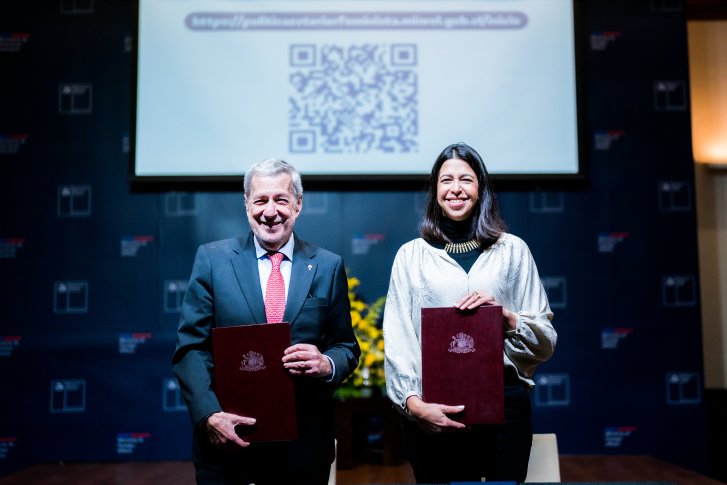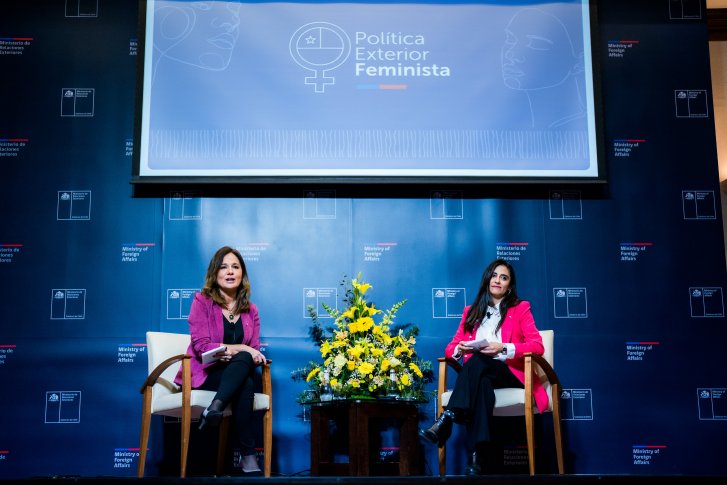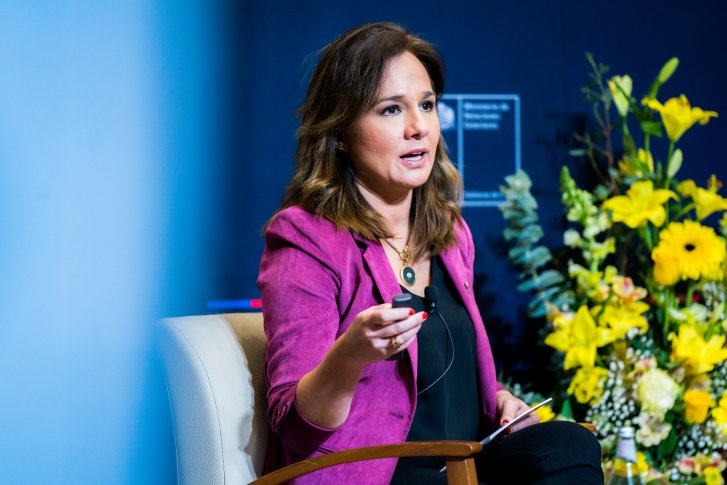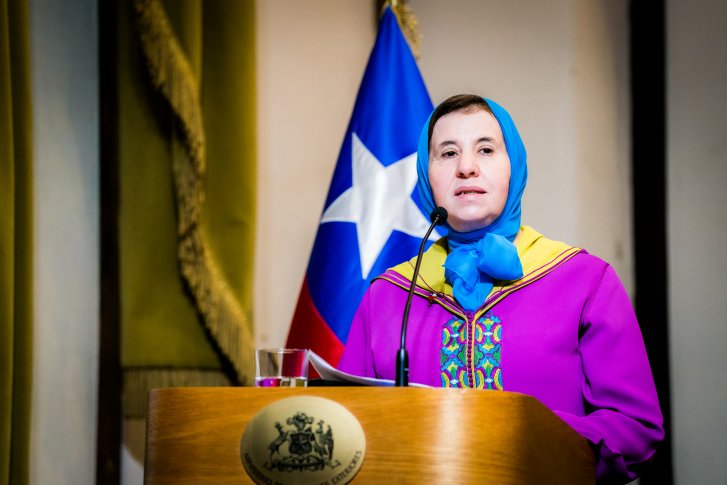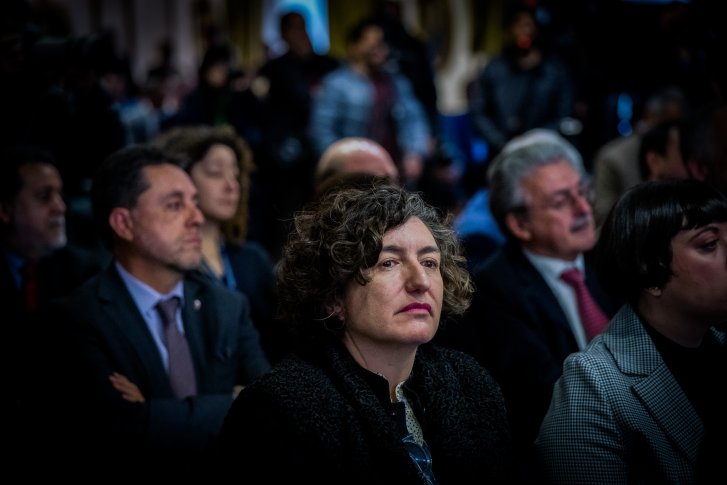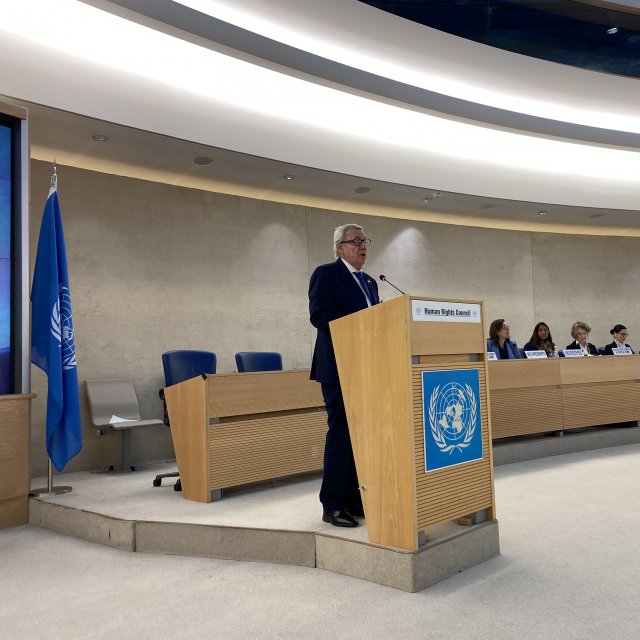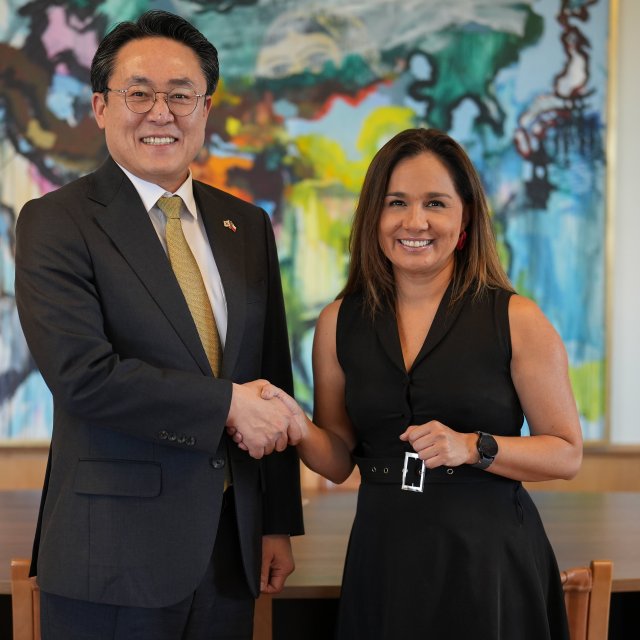 Thursday, February 27th 2025
Undersecretary meets with the Minister of Oceans and Fisheries of the Republic of Korea
Thursday, February 27th 2025
Undersecretary meets with the Minister of Oceans and Fisheries of the Republic of Korea
Ministry of Foreign Affairs presents Chile's Feminist Foreign Policy and reinforces its international commitment to human rights
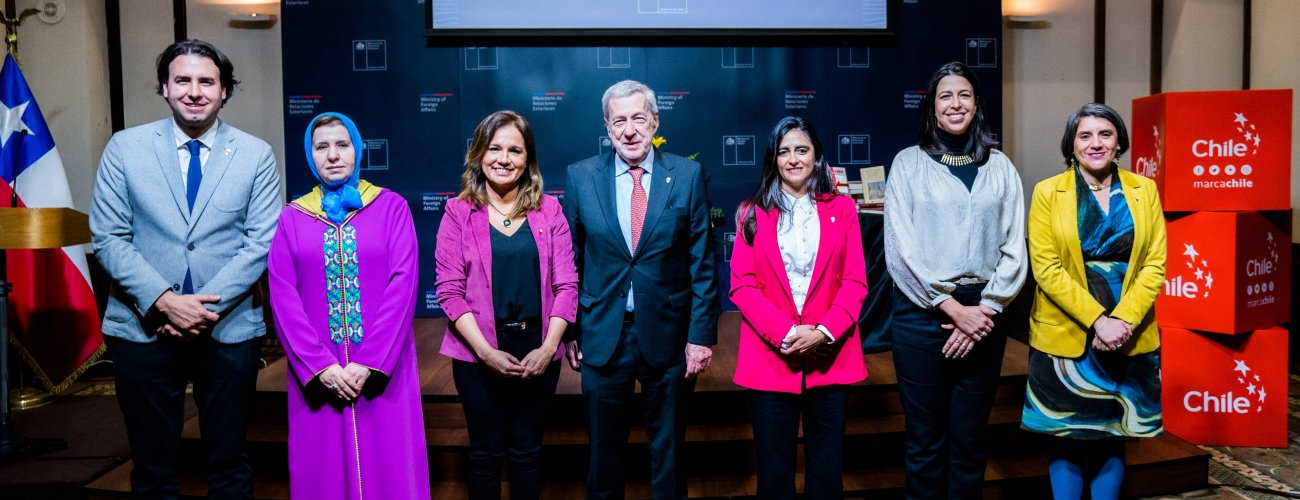
Minister Alberto van Klaveren and the undersecretary of Foreign Affairs, Gloria de la Fuente, and the undersecretary of International Economic Relations, Claudia Sanhueza, presented today the Feminist Foreign Policy (PEF), an instrument that seeks to establish the principle of gender equality as a guiding principle in the work of the Foreign Affairs Ministry.
This reinforces Chile's commitment to the promotion of human rights, which our country has strongly promoted at the international level in recent decades. In this sense, Undersecretary Gloria de la Fuente emphasized that this policy is configured "as a strategy of international insertion in accordance with the challenges posed by the global agenda".
"An equal, plural and diverse participation in the public space is an imperative for a stronger democracy," the undersecretary assured and added that "Chile today more than ever, aspires to the development of policies and actions that promote the autonomy and empowerment of women in different spaces to build a more just, inclusive and sustainable society".
For his part, the Minister emphasized that "the basis of a Feminist Foreign Policy is nothing strange: it is the conviction to achieve a more egalitarian world," and added that "it is a paradigm under construction, which will necessarily be updated, deepened and strengthened along with the progress of society itself and the challenges of the future.
Thus, Chile becomes the first South American country to implement a Feminist Foreign Policy, joining those who already have one, such as France, Canada, Germany, Spain, Luxembourg, Mexico, among others.
The FFP's priorities are to strengthen democracy with a focus on gender equality; to promote greater empowerment and representation of women; to deepen the women, peace and security agenda; to address issues such as trade and gender, climate change, science, technology and innovation; and to promote a comprehensive care system.
In the area of trade, the Undersecretary for International Economic Relations recalled that "Chile has been a visionary country in this area, including the first chapter on gender in a bilateral trade agreement with Uruguay, followed by Canada, Argentina, Ecuador and recently with the European Union" and assured that "governments, international organizations and the private sector have and can create the conditions to ensure a better distribution of benefits in international trade".
This policy recognizes that gender gaps are an obstacle to the construction of more representative democracies and limit the development of countries, and promoting equality is a legal obligation arising from global treaties signed by Chile. In this context, it will seek to promote global and regional governance, allowing the identification of spaces for the creation and updating of international standards incorporating the gender approach.
At the institutional level, the Foreign Ministry will create the Gender Affairs Division, which will be responsible for the implementation of this policy, in addition to coordinating the work with the agencies under the Ministry: the Directorate of Borders and Boundaries, ProChile, the Chilean Antarctic Institute and the International Cooperation Agency.
Signing of the United Nations Development Program's Gender Equality Seal
The Minister also signed the Memorandum of Understanding Gender Equality Seal for Public Institutions of the United Nations Development Program (UNDP), which seeks to establish a framework for collaboration in this area.
The areas of cooperation focus on identifying existing gender gaps in the institution and thus moving forward with an action plan. Once the program is completed, there will be an external evaluation for its certification and thus recognize the Undersecretariat as a service that complies with gender equality standards, a fundamental support for the implementation of the Feminist Foreign Policy.
Finally, in the context of the activity, the ambassadors of the foreign diplomatic corps in Chile presented a recognition to the Foreign Ministry for its commitment to women's rights.
Related articles
 Thursday, February 27th 2025
Undersecretary meets with the Minister of Oceans and Fisheries of the Republic of Korea
Thursday, February 27th 2025
Undersecretary meets with the Minister of Oceans and Fisheries of the Republic of Korea
 Monday, February 24th 2025
Minister van Klaveren reaffirms Chile's commitment to human rights and gender equality
Monday, February 24th 2025
Minister van Klaveren reaffirms Chile's commitment to human rights and gender equality







